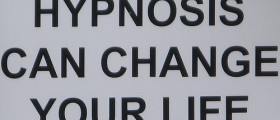
What is holistic healing?
Holistic healing is the application of holistic principles on medicine. Holism is a philosophy named after a Greek word “holos” meaning all, completely, entire, or total. As the name suggests, holism is a theory according to which all the properties of a given system cannot be explained by its component parts alone, but only by observing the system as a whole. Even the famous Greek philosopher Aristotle tried to explain holism in his most prominent work Metaphysics. Aristotle said, "The whole is different from the sum of its parts".
Holistic healing is a concept that commonly appears in psychosomatic medicine. Holistic medicine embraces a concept that a disturbance on any level - Somatic, psychic, or social – always reflects to all other levels, too. In traditional, alternative, medicine, holistic healing practices are taking account of all aspects of people's needs, physical, social, and mental, seen as a whole. It is often referred to as the body-spirit connection or as energetic healing.
Philosophy of holistic healing
Holistic healing emphasizes the need to look at the whole person, including person’s overall values: physical, dietary, environmental, emotional, societal, spiritual and lifestyle. In the same manner, holistic healing encompasses many different methods and treatments. This kind of medical approach is more focused on prevention of the disease and wellness, than on the treatment of ailments and disease care. The mere physical health is not the main focus of holistic healing, and this is the main difference between holistic healing and other types of conventional, alternative or complementary medicine.
Philosophy of holistic healing teaches that physical illnesses occur as symptoms of greater imbalances that sometimes have nothing to do with the physical health. Finding the reasons behind some physical problem can lead the examiner to a completely different realm of patient’s life, but only if the patient is examined as a whole. Physical issues can also cause the imbalance through an improper diet, sedentary lifestyle or sleep deprivation.
However, imbalances are often a result of various mental, emotional, or spiritual needs that have not been met.
The important thing to understand is that holistic healing is not aimed to treat a specific patient’s problem. It is more like a way of living, an on-going journey to wellbeing, health and good life. Choosing a perfect holistic healer practitioner is also different from choosing a medical professional. In the same way, the practitioners look at the patients differently, they all have his or her own specialty to offer.

















Your thoughts on this
Loading...